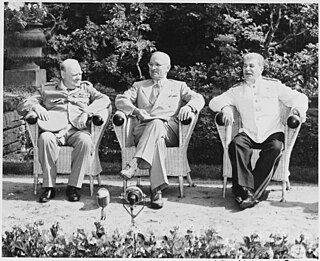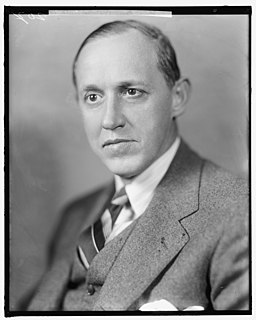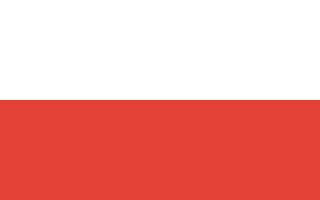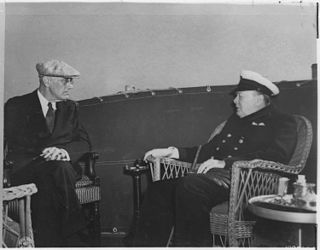
The Potsdam Conference was held in Potsdam, Germany, from July 17 to August 2, 1945 to allow the three leading Allies to plan the postwar peace, while avoiding the mistakes of the Paris Peace Conference of 1919. The participants were the Soviet Union, the United Kingdom, and the United States. They were represented respectively by General Secretary Joseph Stalin, Prime Ministers Winston Churchill and Clement Attlee, and President Harry S. Truman. They gathered to decide how to administer Germany, which had agreed to an unconditional surrender nine weeks earlier. The goals of the conference also included establishing the postwar order, solving issues on the peace treaty, and countering the effects of the war.

The Tehran Conference was a strategy meeting of Joseph Stalin, Franklin D. Roosevelt, and Winston Churchill from 28 November to 1 December 1943, after the Anglo-Soviet invasion of Iran. It was held in the Soviet Union's embassy in Tehran, Iran. It was the first of the World War II conferences of the "Big Three" Allied leaders. It closely followed the Cairo Conference which had taken place on 22–26 November 1943, and preceded the 1945 Yalta and Potsdam conferences. Although the three leaders arrived with differing objectives, the main outcome of the Tehran Conference was the Western Allies' commitment to open a second front against Nazi Germany. The conference also addressed the 'Big Three' Allies' relations with Turkey and Iran, operations in Yugoslavia and against Japan, and the envisaged post-war settlement. A separate protocol signed at the conference pledged the Big Three to recognize Iran's independence.

The Yalta Conference, also known as the Crimea Conference and codenamed Argonaut, held 4–11 February 1945, was the World War II meeting of the heads of government of the United States, the United Kingdom, France and the Soviet Union to discuss the postwar reorganization of Germany and Europe. The four states were represented by President Franklin D. Roosevelt, Prime Minister Winston Churchill, Général de Gaulle and General Secretary Joseph Stalin, respectively. The conference was held near Yalta in Crimea, Soviet Union, within the Livadia, Yusupov, and Vorontsov Palaces.

The Cairo Conference occurring November 22–26, 1943, held in Cairo, Egypt, outlined the Allied position against the Empire of Japan during World War II and made decisions about postwar Asia.

Harry Lloyd Hopkins was an American statesman, public administrator, and presidential advisor. A trusted deputy to President Franklin Delano Roosevelt, Hopkins directed New Deal relief programs before serving as the 8th United States Secretary of Commerce from 1938 to 1940 and as Roosevelt's chief foreign policy advisor and liaison to Allied leaders during World War II. During his career, Hopkins supervised the New York Temporary Emergency Relief Administration, the Federal Emergency Relief Administration, the Civil Works Administration, and the Works Progress Administration, which he built into the largest employer in the United States. He later oversaw the $50 billion Lend-Lease program of military aid to the Allies and, as Roosevelt's personal envoy, played a pivotal role in shaping the alliance between the United States and the United Kingdom.

The First Quebec Conference, codenamed "Quadrant", was a highly secret military conference held during World War II by the governments of the United Kingdom, Canada, and the United States. It took place in Quebec City on August 17–24, 1943, at both the Citadelle and the Château Frontenac. The chief representatives were Winston Churchill and Franklin D. Roosevelt, hosted by the Canadian prime minister William Lyon Mackenzie King.

The Casablanca Conference or Anfa Conference was held at the Anfa Hotel in Casablanca, French Morocco, from January 14 to 24, 1943, to plan the Allied European strategy for the next phase of World War II. In attendance were United States President Franklin D. Roosevelt and British prime minister Winston Churchill. Also attending were the sovereign of Morocco, Sultan Muhammad V, and representing the Free French forces, Generals Charles de Gaulle and Henri Giraud, but they played minor roles and were not part of the military planning. USSR general secretary Joseph Stalin declined to attend, citing the ongoing Battle of Stalingrad as requiring his presence in the Soviet Union.

The Provisional Government of the Republic of Poland was created by the State National Council on the night of 31 December 1944.
A summit meeting is an international meeting of heads of state or government, usually with considerable media exposure, tight security, and a prearranged agenda. Notable summit meetings include those of Franklin D. Roosevelt, Winston Churchill, and Joseph Stalin during World War II. However, the term summit was not commonly used for such meetings until the Geneva Summit (1955). During the Cold War, when American presidents joined with Soviet or Chinese counterparts for one-on-one meetings, the media labelled the event as a "summit". The post–Cold War era has produced an increase in the number of "summit" events. Nowadays, international summits are the most common expression for global governance.

The Second Cairo Conference of December 4–6, 1943, held in Cairo, Egypt, addressed Turkey's possible contribution to the Allies in World War II. The meeting was attended by President Franklin D. Roosevelt of the United States, Prime Minister Winston Churchill of the United Kingdom, and President İsmet İnönü of the Republic of Turkey.

The Malta Conference was held from January 30 to February 3, 1945 between President Franklin D. Roosevelt of the United States and Prime Minister Winston Churchill of the United Kingdom on the island of Malta. The purpose of the conference was to plan the final campaign against the Germans with the Combined Chiefs of Staff. Politically, the overriding purpose was to present a united front against Stalin in the Yalta Conference a few days later. That did not happen once Yalta began, much to Churchill's disappointment. Both leaders agreed on the undesirability of the Red Army advancing into central Europe.
The Fourth Moscow Conference, also known as the Tolstoy Conference for its code name Tolstoy, was a meeting in Moscow between Winston Churchill and Joseph Stalin from 9 October to 19 October 1944.

The Soviet re-occupation of Latvia in 1944 refers to the military occupation of Latvia by the Soviet Union in 1944. During World War II Latvia was first occupied by the Soviet Union in June 1940 and then was occupied by Nazi Germany in 1941–1944 after which it was re-occupied by the Soviet Union.

World War II: When Lions Roared is a 1994 American war television miniseries, directed by Joseph Sargent, and starring Michael Caine, John Lithgow and Bob Hoskins as the three major Allied leaders, Stalin, Roosevelt and Churchill respectively. It was notable as the first video production to be produced in high-definition video for broadcast in the United States, using the Sony HDVS line of analog high-definition equipment, although it was broadcast by the NBC television network in standard NTSC resolution.
The Declaration of the Four Nations on General Security, or Four Power Declaration, was signed on October 30, 1943, at the Moscow Conference by the Big Four: the United States, the United Kingdom, the Soviet Union, and China. The declaration formally established the four-power framework that would later influence the international order of the postwar world. It was one of four declarations signed at the conference; the others were the Declaration on Italy, the Declaration on Austria, and the Declarations on Atrocities.
The following is a timeline of the first premiership of Winston Churchill, who was the Prime Minister of the United Kingdom from 1940 to 1945 and again from 1951 to 1955. Churchill served as the Prime Minister of the United Kingdom during the bulk of World War II. His speeches and radio broadcasts helped inspire British resistance, especially during the difficult days of 1940–41 when the British Commonwealth and Empire stood almost alone in its active opposition to Nazi Germany. He led Britain as Prime Minister until victory over Nazi Germany had been secured.

The UK-US relations in World War II comprised an extensive and highly complex relationships, in terms of diplomacy, military action, financing, and supplies. British Prime Minister Winston Churchill and American President Franklin D. Roosevelt formed close personal ties, that operated apart from their respective diplomatic and military organizations.

The third presidential term of Franklin D. Roosevelt began on January 20, 1941, when he was once again inaugurated as the 32nd president of the United States, and the fourth term of his presidency ended with his death on April 12, 1945. Roosevelt won a third term by defeating Republican nominee Wendell Willkie in the 1940 United States presidential election. He remains the only president to serve for more than two terms. Unlike his first two terms, Roosevelt's third and fourth terms were dominated by foreign policy concerns, as the United States became a belligerent in World War II in December 1941.
The foreign policy of the United States was controlled personally by Franklin D. Roosevelt during his first and second and third and fourth terms as the president of the United States from 1933 to 1945. He depended heavily on Henry Morgenthau Jr., Sumner Welles, and Harry Hopkins. Meanwhile, Secretary of State Cordell Hull handled routine matters; the president ignored Hull on most major issues. Roosevelt was an internationalist, and Congress favored more isolationist solutions, so there was considerable tension before the Attack on Pearl Harbor in December 1941 silenced or converted the isolationists. During the war, key decisions were made at the highest level by Roosevelt, Britain's Winston Churchill and the Soviet Union's Joseph Stalin, along with their top aides.